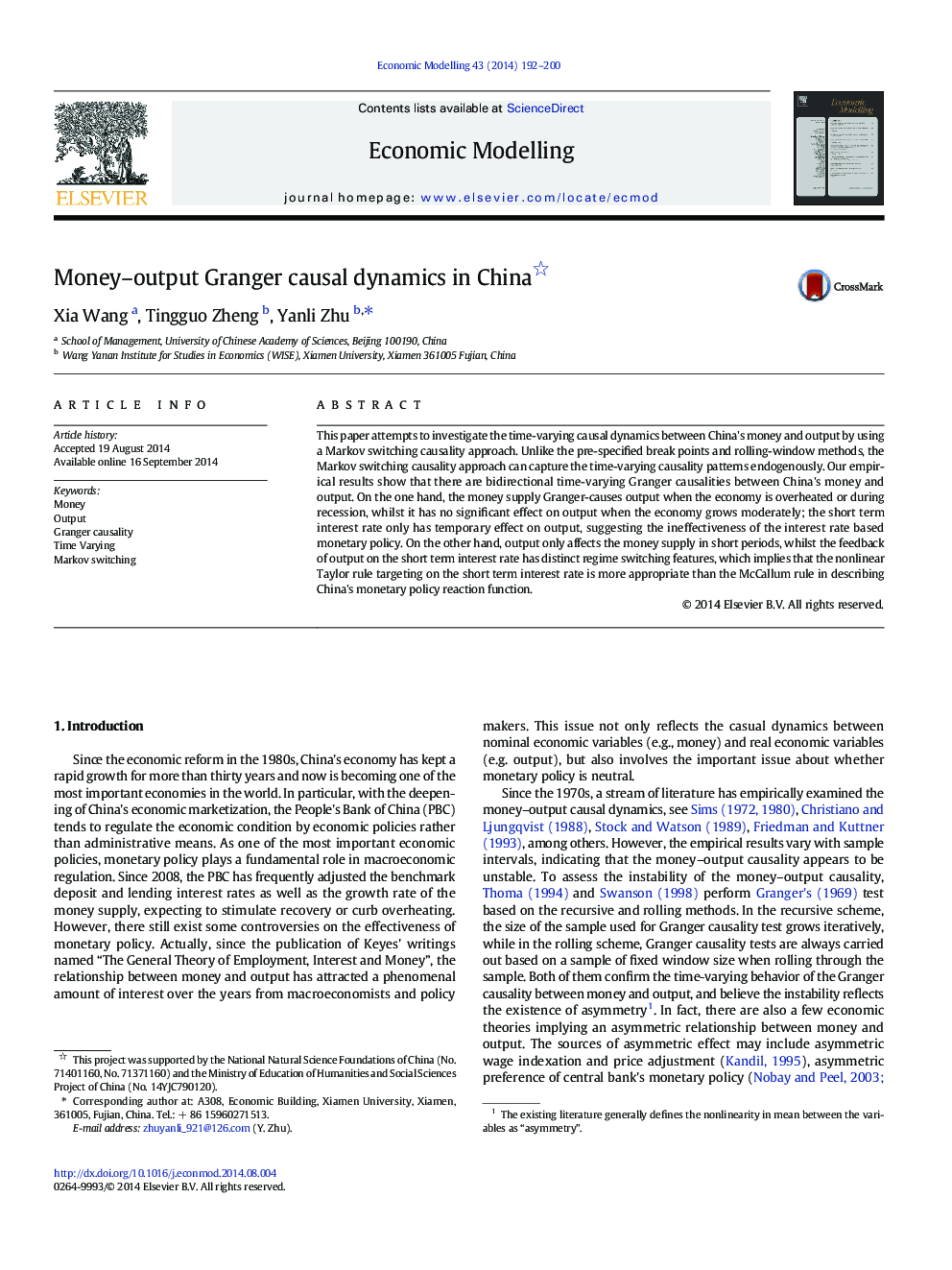| Article ID | Journal | Published Year | Pages | File Type |
|---|---|---|---|---|
| 5054177 | Economic Modelling | 2014 | 9 Pages |
Abstract
This paper attempts to investigate the time-varying causal dynamics between China's money and output by using a Markov switching causality approach. Unlike the pre-specified break points and rolling-window methods, the Markov switching causality approach can capture the time-varying causality patterns endogenously. Our empirical results show that there are bidirectional time-varying Granger causalities between China's money and output. On the one hand, the money supply Granger-causes output when the economy is overheated or during recession, whilst it has no significant effect on output when the economy grows moderately; the short term interest rate only has temporary effect on output, suggesting the ineffectiveness of the interest rate based monetary policy. On the other hand, output only affects the money supply in short periods, whilst the feedback of output on the short term interest rate has distinct regime switching features, which implies that the nonlinear Taylor rule targeting on the short term interest rate is more appropriate than the McCallum rule in describing China's monetary policy reaction function.
Related Topics
Social Sciences and Humanities
Economics, Econometrics and Finance
Economics and Econometrics
Authors
Xia Wang, Tingguo Zheng, Yanli Zhu,
